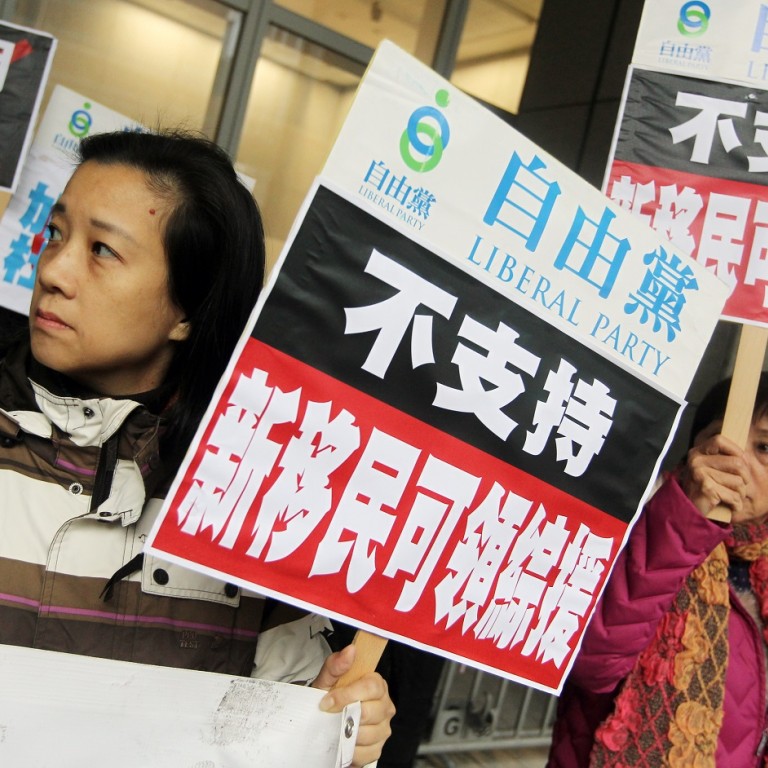
In Hong Kong, slurs and stereotyping pass for debate
Susan Chan says immigrant welfare is the latest example of how we air our disagreements through slurs and stereotypes that get us nowhere
The landmark ruling by the Court of Final Appeal on CSSA has sent shock waves across the city and further divided society. If nothing is done to address the situation, those mainland migrants who benefit financially from the ruling may suffer in the end, as they will find it harder to integrate into Hong Kong society.
People on both sides of the argument have their reasons for supporting or opposing the ruling. This is not just a legal issue; it touches on the frustrations of different groups of people about our social welfare system, the distribution of resources and relations between so-called locals and new immigrants.
We need rational discussion to achieve mutual understanding and settle differences. Unfortunately, this is now rare in our society.
Today, stereotypes and extreme language prevail - people claim welfare benefits "breed laziness" and new immigrants "cheat the system". On the other side, the government is "callous" and "could not care less about the grass roots"; civil servants are getting paid for "doing nothing", the government and the business sector must be "colluding".
Such talk has affected our judgment, disturbed our daily life and weakened our ability to have rational discussion on issues that are vital for our long-term development, including housing programmes, population policy and relations with the mainland.
Last year, many believed the stories of mainlanders abducting children in Hong Kong, even though the claims were illogical, causing panic across the community. Some say the government wants the Northeast New Territories to become a backyard for the rich from the mainland, although we all know that these rich people are already buying property anywhere they want.
The central government is accused of "diluting" Hong Kong people with babies born to non-Hong Kong parents, although it was our court's ruling that let in these babies. Government officials have been called "eunuchs" and "dogs". New immigrants on CSSA are referred to as locusts, while others say that, "if you do not support what I believe is the only right way forward for democracy, then you are a traitor".
We may not think it matters when those not seen as one of "us" become targets; we may even be happy to see it happen. But when we find ourselves the target, we will quickly see that all efforts at talking reason and putting forward numbers are in vain, and the plea for rationality and understanding just falls on deaf ears.
The 2012 Legislative Council election was one example, when the Democratic Party was labelled a traitor because its members supported the government political reform package. The court ruling on CSSA is another.
Extreme language will only breed even more extreme language, and stereotypes only fuel tension and conflict. Our society will make no progress and will certainly not become better because of this.
The divisions we see over the CSSA ruling just reflect a broader situation and all of us should think deeply about how society can move forward amid such different views, and also look at just where we want our society to head.
